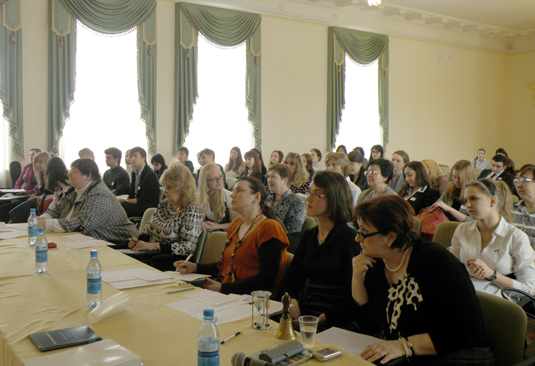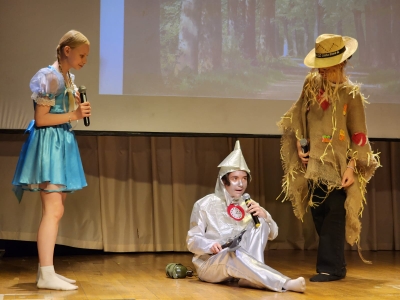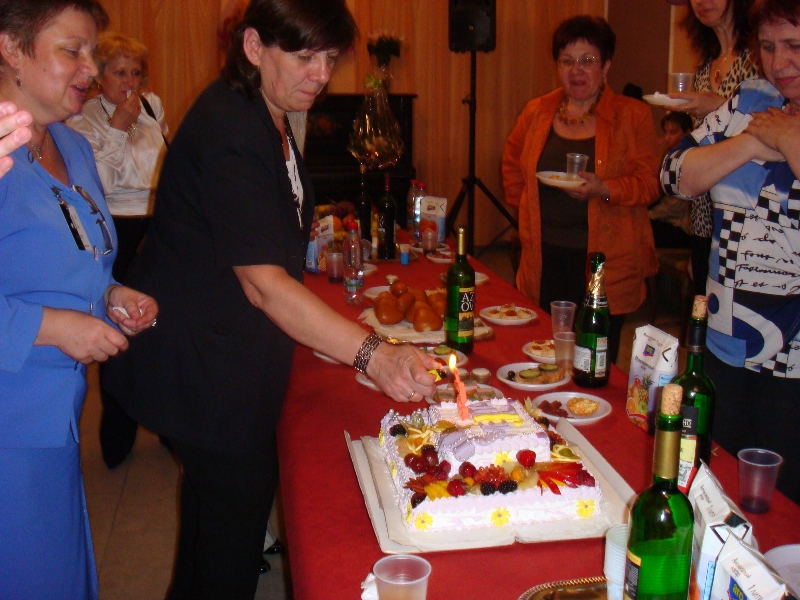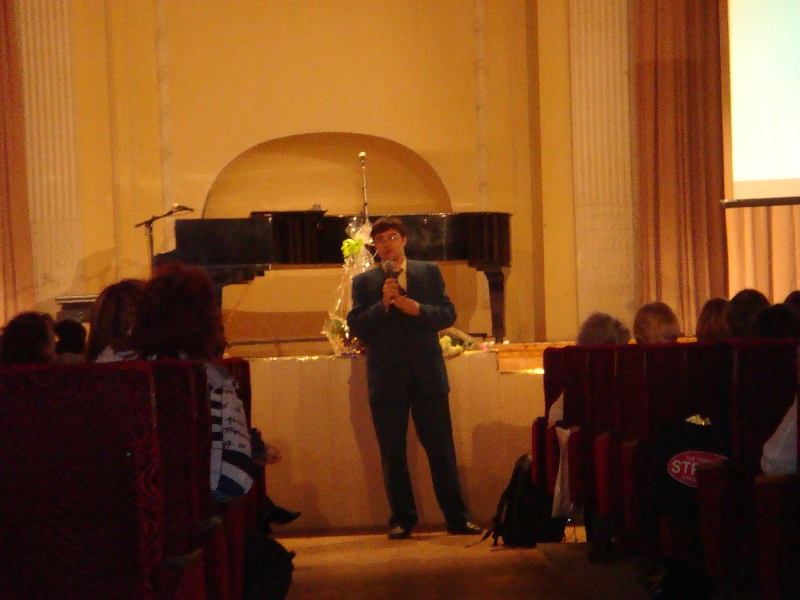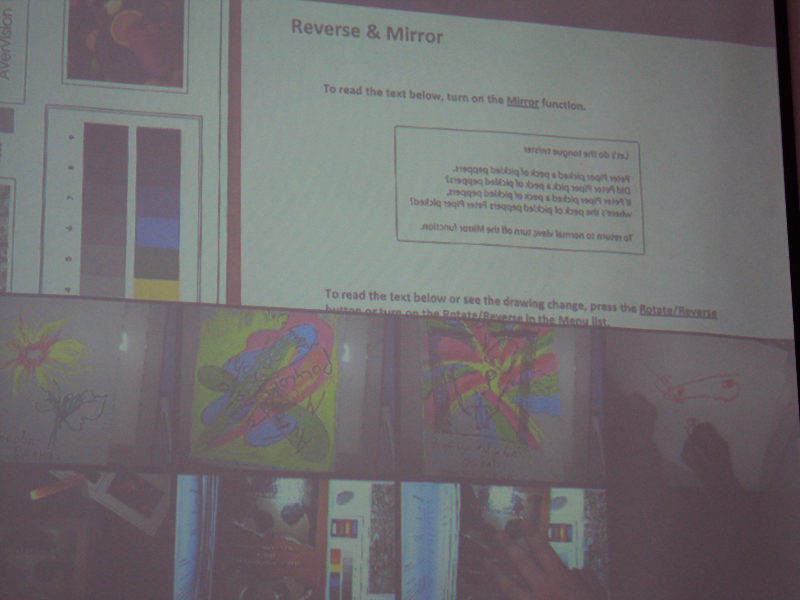Июн
27
Active Listening for Effective Communication: Criteria and Techniques
Workshop
Speaker: Olga Boltneva
elt-moscow.ru
XVII th NATE 2011
“No man has learned to speak well until he has first learned to hold his tongue.”
An old German proverb
“We were all given one mouth and two ears. The wisest people use them in that proportion.”
Anonymous
“Active listening“
(Leader Effectiveness Training, Thomas Gordon)
is a communication technique that requires the listener
• to receive
• to focus
• to interpret
• to evaluate
Why practice active listening?
• Helps us understand others better
• Shows others we respect them
• Allows us to receive accurate messages
• Enables us to respond appropriately
• Shows people are cared about
• Motivate students to study better
• Improves students’ study skills
• Improves interpersonal relationships
Active Listening Techniques
• Attending
• Paraphrasing
• Clarifying
• Asking
• Encouraging
• Reflecting
• Summarizing
SOLER posture – nonverbal skill
• S = Squarely face person
• O = use Open posture
• L = lean towards the person
• E = use eye contact
• R = relax, keep it natural
Poor Listening Habits
• «Turning a speaker off and dwelling on the plethora of internal distractions we all have.
• Letting an early remark of a speaker, with which one disagrees, develop a prejudice which clouds or puts a stop to any further listening.
• Allowing personal characteristics of the speaker or his poor delivery to prevent understanding.»
RESOURCES
• http://712educators.about.com/cs/activelistening/a/activelistening_2.htm
• The Art of Active Listening
http://www.selfgrowth.com/articles/THE_ART_OF_ACTIVE_LISTENING.html
• http://www.buzzle.com/articles/active-listening-exercises.html
• http://712educators.about.com/od/activelistening/Active_Listening_Resources.htm http://esl.about.com/od/speakingadvanced/a/timestress.htm
• http://www.netplaces.com/new-teacher/behavior-management/active-listening.htm
• http://www.netplaces.com/self-esteem/active-listening/overcoming-the-obstacles-to-listening.htm
• http://www.netplaces.com/self-esteem/active-listening/learning-to-become-an-active-listener.htm
Константин Сергеевич Станиславский.
Развитие креативности
Есть люди, которые не любят слушать, им гораздо интереснее говорить самим. Они томятся, когда все же приходится что-то выслушать в разговоре, но с нетерпением выискивают момент, когда можно перебить собеседника. Любопытное зрелище — диалог двух таких «перебивальщиков»! И есть люди, которые любят слушать. Разговаривать с ними — удовольствие. Замечено, что люди, умеющие слушать обладают более развитым интеллектом и воображением. Так что — учитесь слушать! Везде, всегда.
— Когда вы идете по шумной людной улице, попробуйте, не глядя по сторонам, лишь по доносящимся до вас звукам ясно представить себе зрительно, что происходит вокруг.
— Попробуйте улавливать звуки выборочно — слушать, к примеру, только шумы проезжающих машин, не обращая внимания на все остальное. Думайте, что это за машины, угадывайте, какие они, придумывайте, куда они едут, кто в них сидит.
— Прислушайтесь к шагам отдельных прохожих, но не смотрите на них. По характеру шагов — нафантазируйте себе внешний облик прохожего, и даже его мысли, его биографию. Угадайте, куда он идет. Не стоит из любопытства проверять свои фантазии и узнавать у прохожего, верно ли вы определили его профессию. Мы занимаемся в этом упражнении не ясновидением, а совсем другим, более плодотворным, делом — развиваем органы чувств, память восприятий, воображение и фантазию.
Listen to the sounds around you. What are they? Do you hear traffic? Do you hear the buzz of a florescent light? Do you hear children playing, neighbors talking, or music in the background? If you can answer this question, you were listening. Yes! It is that simple. If you stopped to focus on the sounds around you, it was a voluntary decision and your hearing went a step further and turned into listening.
Test Your Listening Abilities
The only real test for listening is to listen. The following assessment will, however, help you understand if you are using your listening skills to best advantage.
Review the following statements. Put a check by the statements that most closely match your listening traits.
1. I tune out when something is boring to me.
2. I listen to the whole story before making a decision or coming to a conclusion.
3. I often begin formulating a response in my head as the other person talks.
4. I really try to understand the other person's point when listening.
5. Sometimes, I start listening on a negative note.
6. I objectively evaluate all information, regardless of the source.
7. My mind wanders to unrelated material when the speaker is talking.
8. I can tune out distractions such as noise when I am listening.
9. I judge the information before I truly understand what the speaker means.
10. I leave my emotions outside when listening. I listen with an objective mind.
11. I often interrupt the speaker so that I can say what I want to say.
12. I force myself to never mentally argue with the speaker when he or she is speaking.
13. I answer questions that are asked of other people.
14. I usually accept information as true from people I like and respect.
15. I eliminate some information from the message to simplify what I am hearing.
16. I force myself to be silent during conversations so that I can focus on what is being said instead of what I am going to say.
If you checked more odd numbers than even numbers, you have created some monumental barriers to effective listening. If you checked more even numbers than odd numbers, you have learned how to eliminate many barriers to the listening process.
